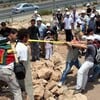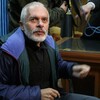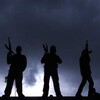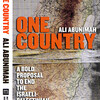
Saddam Hussein and Lebanese Politics
Lebanon 9 January 2007
The last week in 2006 wasn’t just about the celebration of the holidays. There’s also the anti-government protest, the hanging of the Iraqi leader Saddam Hussein, and politics in the Middle East. The environment was the concern of Dove’s Eyes View, who comments on the Bush’s administration most significant concessions to date on the dangers of global warming as it proposes protecting the polar bears. And Layal voices the concern of a Lebanese youth who refuses to leave Lebanon despite the current political conditions and even though all of her high school and university friends are traveling abroad. Read more about Saddam Hussein and Lebanese Politics








